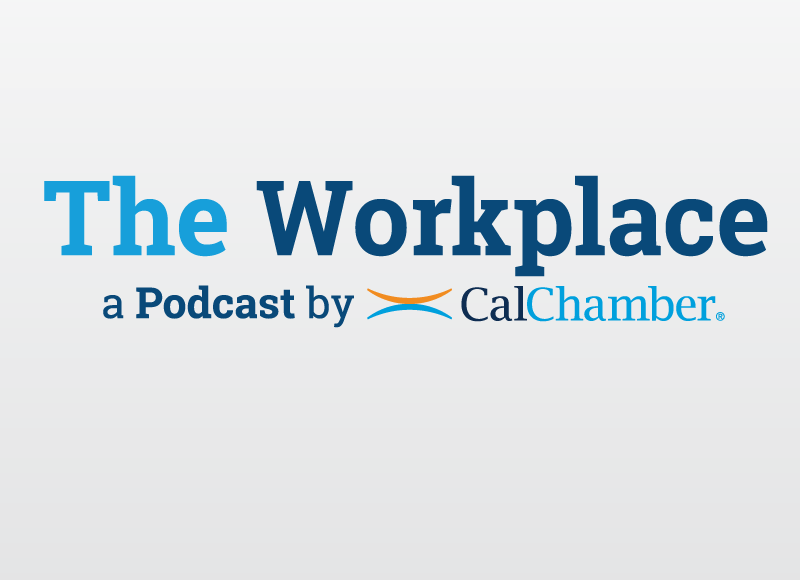

News from: CalChamber
Finding novel ways to increase efficiency or prevent workplace harassment can create serious problems for employers if not properly executed or thought out.
In this week’s episode of The Workplace, CalChamber Executive Vice President and General Counsel Erika Frank and employment law attorney Jennifer Shaw discuss the implications of events highlighted in three recent news stories: The first recounts a company’s job announcement seeking “preferably Caucasian” candidates; the second involves an employer’s attempt to establish a no-touching workplace; and the third describes problems that can be created in the workplace due to texting mishaps.
Review Your Work
A Virginia information technology staffing agency made headlines recently for posting a job ad seeking “preferably Caucasian” candidates. In the podcast, Shaw mentions that in an effort to increase efficiency, many companies choose to use resume scanning software, and it is possible that this staffing agency simply made an error by checking a wrong box and not reviewing the final job announcement before it was published.
Why would race even be an option? Ninety-nine percent of the time, Shaw says, race is not relevant. However, there are isolated cases that allow for bona fide occupational qualifications (BFOQ), where race or ethnicity can be considered, such as when a worker is interacting with a refugee population and needs to have cultural or language rapport.
Although the Virginia staffing agency said it was upset by the job posting, both Frank and Shaw agree the response was not helpful.
“Employers need to fall on their sword when they make a mistake,” Shaw says.
No-Touch Workplace
Another recent article tackled how some employers are attempting to prevent workplace sexual harassment by banning all physical contact, including handshakes.
Frank and Shaw comment that cultural norms vary a great deal in American workplaces—especially in California. Nevertheless, there still is a sense of proper etiquette and “good manners,” they say. Although no one is expected to be a mind reader, common sense should prevail, Frank says.
“We have to be realistic as far as how far we’re going to go to try and prevent any unintended consequence from a potential handshake or inadvertent touch in the workplace,” Frank says.
Texting vs. Email
The last news item discussed in the podcast is a clash between technology and common sense: companies incorporating text messages into workplace communications. Quickly becoming the norm, texting in the workplace brings a host of problems and raises many legal questions. On the one hand, text messages often produce quicker responses, but this increases the number of mistakes that can be made. Texting may be convenient, but group texts and responses can inundate users. Furthermore, while auto correct is supposed to make spelling easier, it can create, and has created, many embarrassing situations, which are amplified in the workplace.
There also is a range of wage-and-hour requirements that employers need to be aware of—including reimbursing employees for the work-related text messages, which can be costly, Frank says. On top of all this, Shaw points out, texts between coworkers are still work-related communications and therefore phones can be subpoenaed.
“Texting is good for ‘Can you bring, you know, some milk home for dinner, honey,’ but it’s probably not good for much else in the business world,” Shaw says.
Subscribe to The Workplace
Subscribe to The Workplace on iTunes, Google Play, Stitcher, PodBean and Tune In. New episodes will be released each Wednesday.
Comments are closed.

